-
Teaching Your Employees About Industrial Waste
While it’s important for everyone to handle their waste near Atlanta responsibly, industrial waste includes some special considerations. Industrial waste disposal is different from other kinds of waste management systems. This is because the materials being disposed of tend to be more hazardous to the environment, so they must be handled with care. As long as you work with your waste management professionals, however, you should be able to dispose of your industrial waste in the most environmentally-friendly way possible. Continue reading to see why teaching your employees about industrial waste is so important.
In addition to being a responsible practice that is beneficial to the environment, a quality industrial waste management program will keep your space clean and reduce the chance of health hazards. One of the most important aspects of industrial waste disposal is ensuring that people have access to the right receptacles. Employees should know where to find these receptacles, and they should also be trained in how to handle industrial waste safely. Another important point to consider is the scheduling of your waste pickup. You don’t want your industrial waste to pile up, so make sure your pickups are scheduled at the right intervals.
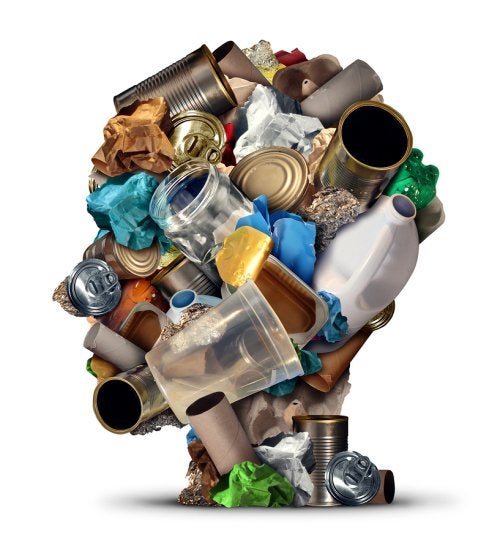
-
Don’t Believe These Myths About Recycling
Recycling is an important part of any commercial waste management strategy. Rather than tossing all of your solid refuse into a dumpster, you may want to work with a waste management company to create a recycling program that is effective and easy to follow. A company that rents recycling bins in Atlanta will be able to answer any questions that you may have about why recycling is so important for the Earth. Unfortunately, there are still many myths surrounding the importance and effectiveness of recycling. Let’s debunk some of the most common of these misconceptions.
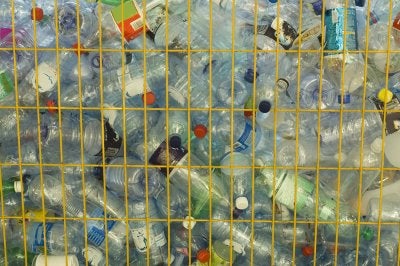
Myth: Recycling Trucks Harm the Environment
Some people believe that the recycling trucks that are responsible for picking up recyclables put significant amounts of pollutants into the atmosphere. If this myth were true, a recycling program could harm, rather than help, the environment. In reality, however, your recycling truck will only pick up your recyclables a few days out of the month. The emissions created during the pickup process are not significant enough to undo the positive effects of recycling.
Myth: Recyclables Must Be Carefully Sorted
In the early days of recycling, homeowners and business owners were required to sort all of their recycled goods by type. Today, however, many different types of recyclables can be placed into the same recycling bin. Once the mixed recyclables reach the recycling facility, they will be carefully processed and sorted by machines. If the thought of sorting through your recyclables seems daunting, you may want to talk to your waste management specialists about your options for creating a mixed recycling bin.
Myth: Recycling Ends Up in the Landfill Anyway
A common myth regarding recycling is that there is no reason to bother with a recycling program, since recyclables are usually sent to the landfill. While many plastic items do end up in landfills, it is possible to reduce harmful landfill waste by sticking to a recycling program. You can even ask your recycling company to provide you with information about the facility where your items will be processed.
-
Classifying Types of Paper for Recycling
When you implement a recycling program for your home or commercial office, chances are that you will be recycling a significant amount of paper products. Designated recycling bins will help you separate paper goods from other recyclables, such as plastics or metals. If you are planning to recycle near Atlanta , it is a terrific idea to gather information about various types of paper products and how they can be recycled. To help you gear up for your new waste management plan, read on for an overview of the different classifications for paper and cardboard recycling.
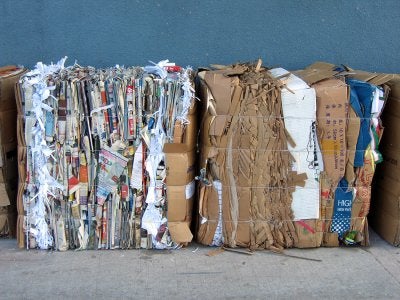
OCC
The term OCC stands for Old Corrugated Containers, and corrugated cardboard is among the most commonly recycled paper products. You can identify whether you are recycling OCC by looking at its material composition. Typically, OCC is distinguished by its ridged surface, which is housed between two flat pieces of cardboard. OCC can be recycled and transformed into a variety of other materials, including postal boxes, paper bags, and more.
ONP
When you have old issues of the newspaper on hand, you will need to figure out how to recycle your ONP, or Old Newspaper. A newspaper is only classified as ONP after it has been distributed to a home or business client for review. When ONP is recycled, it can be transformed into many different types of useful products, including paperboard, tissue, and art paper. In order to process ONP, your recycling center may need to send this material to a special paper mill.
High-Grade Deinked Paper
Business offices and other commercial settings often create large quantities of high-grade paper waste. Some examples of high-grade paper include letterhead, stationary, and business documents. Before high-grade paper can be transformed into new products, it must be sent through a deinking procedure. Removing the ink allows the recycler to process the paper, without having to deal with color inconsistences or variations.
-
A Look at the Effects of Industrial Waste
Businesses like appliance manufacturers, warehouses, and food processing facilities are some examples of producers of industrial waste near Atlanta. Although the amount of industrial waste that is produced is less than that of some other waste sources in the United States, its impact on the environment can be much higher.
Water that is discharged from factories, for example, can pollute rivers and lakes with substances like chemicals, waste, and dyes. This water pollution can kill wildlife and harm the overall ecosystem, and the effects of polluted water have left several plant and animal species endangered. Also, plastics that are disposed of improperly or sent to landfills do not break down and can pollute the environment and pose a hazard to animals.
Today, there are still many factories and facilities that do not practice responsible waste management that involves recycling and proper waste disposal. However, the environmental effects of industrial waste can be reduced when it is handled with the right techniques, and an efficient waste management plan can also help ensure a safe and clean work environment.
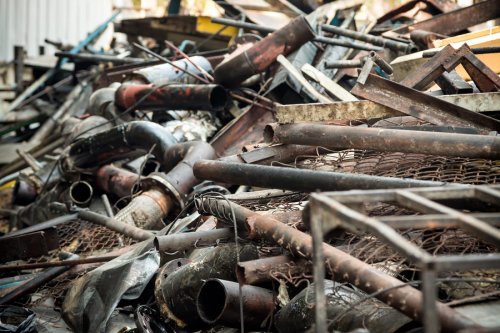
-
What Happens to Recycled Plastic?
Does your home or business use recycling bins in Atlanta as part of a responsible waste management program ? If so, then you may be wondering what happens to the empty water bottles and milk gallons that you toss in the bin. Continue reading to learn what happens to recycled plastic.
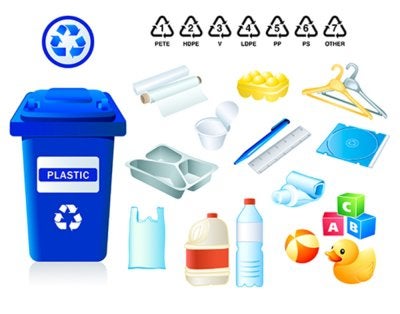
The plastic is collected.
To begin the recycling process, used plastic items are first collected through industrial, commercial, and residential recycling programs. The materials that are collected are then transported to a facility that specializes in sorting the plastic, paper, metal, and other items. Also, the plastic items might be sorted into those that come from plastic bottles, plastic bags, and other plastic varieties. Then, the sorted materials are baled and prepared for transport.
The plastic is processed.
The bales of plastic materials are sent to a manufacturing facility and then processed. During this stage, the plastic is chopped up into small pieces to make them easier to process. Next, to ensure a quality product at the end of the plastic recycling process, the little pieces of plastic are cleansed of any labels, dirt, or other debris before being dried. Finally, the clean plastic pieces are melted and then compressed into little pellets. At this stage, the processed plastic that has been transformed into little pellets is sold to various industries to be transformed into something new.
The plastic is reused.
Once the recycled plastic is in the hands of manufacturers, it can be used for a wide range of purposes. Your recycled milk jugs, laundry detergent containers, and shampoo bottles, for example, are usually made of a sturdy but lightweight plastic that, after being recycled, can be used to make items like new milk jugs, lawn décor, plastic lumber, and recycling bins. Your plastic grocery bags, food wrappers, and bubble wrap can be utilized to make everything from playground equipment and park benches to fencing and new plastic bags. Finally, your soft drink and water bottles can be recycled and made into items such as clothing, carpeting, sleeping bags, and new bottles.
-
Improving Your Recycling Habits
With global climate change becoming an ever-clearer reality, it’s important for everyone to do their part. One of the easiest ways to reduce your carbon footprint is to learn more about recycling. If you have any questions about recycling, be sure to watch this video and reach out to a waste management company in Atlanta .
This video includes a number of humorous reducing, reusing, and recycling suggestions provided by several YouTube personalities. Instead of throwing your paper into the trash, you can cut it up into small pieces and use it as compost. You might also deposit your empty cans and bottles for money, then use that money to treat yourself to something nice at the end of the month. Each time you go to the grocery store, be sure to take a reusable bag. It’s also a good idea to take a travel mug with you when you go to your favorite coffee shop.
-
What to Do with Old Computers
When people think about recycling in Atlanta , they often forget to consider electronics recycling. Many different types of commercial, industrial, and retail businesses generate electronics waste when they replace their broken appliances and equipment with new models. Your local waste management company or recycling center can offer you valuable information and recycling facts about how to dispose of old computers and other electronic devices.
When you throw an old computer into a dumpster, it is simply hauled away to a landfill during trash pickup. A computer will not decompose naturally, but it does contain many toxins that are bad for the environment and may seep into the soil in a landfill. Instead, you can arrange for bulky pickup or junk removal of your electronic devices through your waste management company. Some recycling centers reuse or refurbish computer parts, while others may donate working electronics to schools or charitable organizations.
If there is nothing to salvage or reuse in your computer, your recycling center will ensure that it is disposed of according to the federal and local laws. Reputable recycling centers will recycle electronic devices without resorting to using landfills, incinerators, prison labor, or selling it to a developing country.
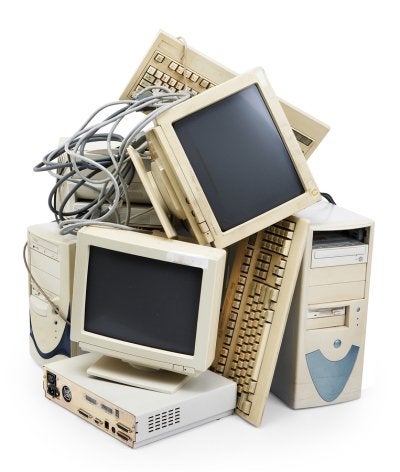
-
Spotlight on Sustainability
Sustainability is a key concern for many of today’s business. When you are researching sustainable practices for your company, you may want to take the time to gather information about waste management and recycling. By updating your trash removal practices with help from a company offering recycling bins in Atlanta , you will feel great knowing that your business is operating in a sustainable and environmentally friendly fashion.
There are several ways that recycling can boost your sustainability. A recycled item will be reused for a new purpose, thereby helping to reduce the carbon emissions and consumption of natural resources that are associated with creating products from all new materials. Recycling can also cut back on the amount of debris and waste that you are tossing in your dumpster. Implementing a recycling program can also place sustainability at the forefront of your business identity. A recycling center can provide you with additional information about the sustainable benefits of recycling.
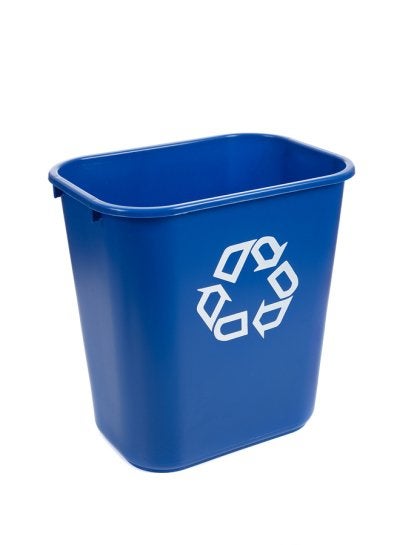
-
The Importance of a Workplace Recycling Program
The typical office environment creates significant amounts of waste paper, cardboard, and other materials. Rather than sending these paper and plastic products to the dumpster, you may want to consider planning and implementing a recycling program for your business. With assistance form a waste disposal company that specializes in recycling in Atlanta, you will be able to create a recycling program that is easy for all of your staff members to follow. When you start recycling, you will be amazed at the amount of recyclable waste that is generated by your business. Here is a look at the importance of a workplace recycling program.
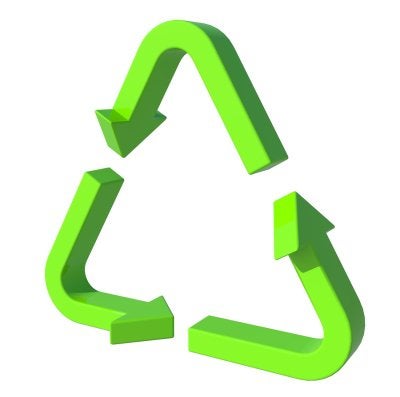
Improve Environmental Impact
A workplace recycling program will help you improve the environmental impact of your business. With many companies choosing to go green with their management and business practices, creating a workplace recycling program is a great way to join the eco-conscious revolution. Taking steps to reduce your carbon footprint and protect natural resources through recycling can also help you draw in new customers and clients who are environmentally minded.
Reduce Average Costs
When you create a recycling plan for your workplace, you can also help to reduce your average operating costs. Recycling paper, plastic, and metal goods will help your employees improve their awareness of the materials that they are using on a daily basis. As a result, you may find that your workers have improved mindfulness regarding conservation and reusing supplies. Over the course of a year, even small recycling measures can translate to significant cost savings.
Raise Company Awareness
When you start a new recycling program in your business, this is also a fantastic opportunity to promote the eco-conscious image of your company. For example, you may want to send out a press release that offers additional information about the new recycling measures that you are taking in your workplace. Even making initial steps towards creating a recycling plan will help boost your image and profile with your community and customers.
-
How to Handle Different Kinds of Restaurant Waste
A restaurant kitchen is a busy, fast paced environment that has very little margin for error or waste. In order to help ensure that your restaurant is as profitable as possible, it is a smart idea to create a waste management plan with a company that specializes in dealing with waste near Atlanta. From plastic and cardboard recycling to food scrap disposal and more, your waste management experts can advise you on every aspect of your restaurant waste methods. After your waste plan has been implemented, you will feel great knowing that you are disposing of excess materials in a safe and effective manner. Here are some tips for handling different kinds of restaurant waste.
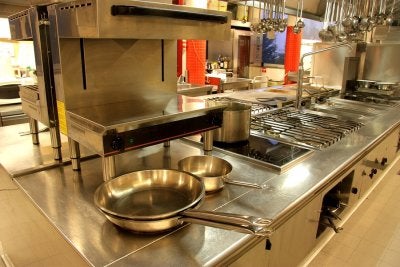
Food Scraps
Food scraps create the bulk of waste that is created by an average restaurant. Some different types of food scraps include excess bits produce, uneaten food, or expired products. Some restaurants choose to compost their plant based food scraps. Other foods, such as meat or poultry items, must be placed in the trash.
Containers
During the prep and production process, your kitchen crew may go through many different types of food containers. Rather than throwing your empty food containers in the trash, you may want to consider creating a recycling program. Recycling cardboard, plastic, and glass containers will help you cut down on the amount of trash that you send to the landfill. A properly implemented recycling program will also improve the environmental sustainability of your restaurant.
Paper Supplies
Depending on the style of your restaurant, you may create large amounts of paper waste on a day to day basis. Some source of paper supply waste include used paper towels, beverage containers, napkins, and bags. As you are creating your waste management plan, you will want to decide how you will dispose of your paper products. Paper that has not been contaminated with food can be recycled. However, paper that has traces of food or drink will need to be thrown away.
RECENT POSTS
categories
- Uncategorized
- Waste Management Atlanta
- Waste Disposal and Recycling
- Hazardous Waste Disposal
- Chemical waste removal
- solid waste removal
- R3 Program
- Sustainable Organizations
- Sustainable Waste Removal
- Commercial Waste Removal
- Materials Management Program
- Dumpster Rental
- Roll Off Dumpsters
- Construction Site Waste Removal
- Sustainability
- Recycling in Atlanta
- Industrial Recycling
- Industrial Waste Removal Services
- Southern Waste & Recycling
- Waste Removal Atlanta
- Waste Specialists
- Atlanta
- Infographic
- Front Load Dumpsters
- Rear Load Dumpsters
- Reusable Electronics
- Dump Truck Atlanta
- Recyclable Electronics
- Trash Compactors
- Recycling
- Recycling Program
- Office Recycling
- Metal Recycle
- Electronic Waste
